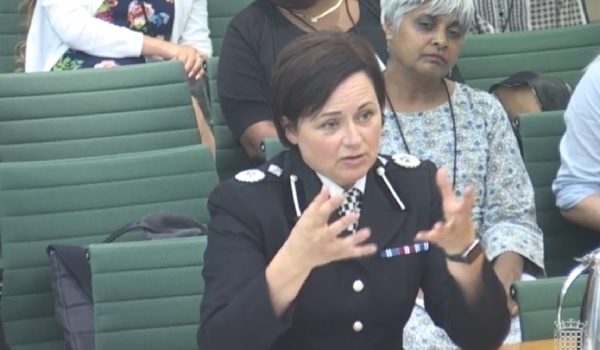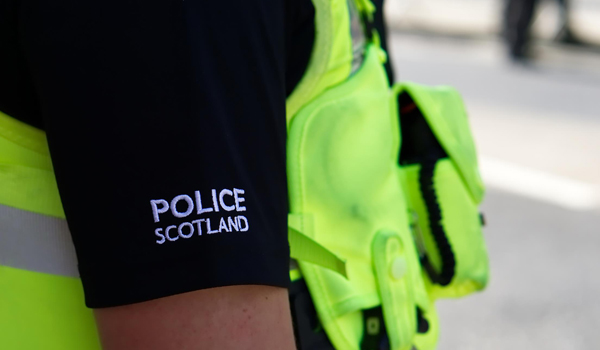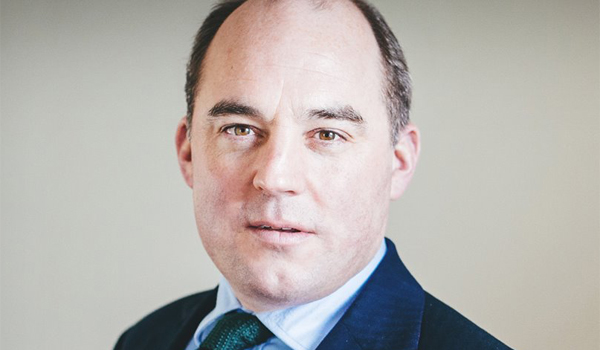Multi-agency commitment to domestic abuse ‘not universal’
The national lead on domestic abuse has called for greater effort from public sector partners to work in collaboration with the police service.
Speaking at a Home Affairs Select Committee (HASC) meeting on Tuesday (July 17), Deputy Chief Constable Louisa Rolfe said officers would benefit from a more “consistent response to both survivors, victims and families” from statutory agencies.
She also said that scrutiny of domestic abuse should be shared across more agencies, and not just the police service.
HASC heard evidence from a range of witnesses who have a role in the prevention and prosecution of domestic abuse as part of a hearing on the proposed Domestic Abuse Bill, a daft of which is currently out for consultation.
Although a lot of criticism was directed towards the police service, Ms Rolfe noted how research shows that officers tend to refer more cases into a Multi-Agency Risk Assessment Conference (MARAC) than any other agency.
MARAC is a victim focused information sharing and risk management meeting attended by several agencies, where high risk cases are discussed.
“Sometimes we experience frustrations because the multi-agency commitment is not universal,” Ms Rolfe said.
“MARAC can feel futile if there is nowhere to go other than some way of multi-agency for managing risks, and we would like to address the issues rather than just being aware of them and managing them.”
Often in MARACs, the coordination role is left to the police service, which Jane Gordon from ‘Sisters for Change’ said should instead be the responsibility local authorities who “have a lot of the cash around this”.
MS Gordon also criticised the role of the NHS in the new Domestic Abuse Bill, saying that when it was announced last July, it was based on education and health departments being heavily involved, but she claimed it has been “much more driven by the Home Office”.
Although recent Her Majesty’s Inspectorate of Constabulary and Fire and Rescue Services (HMICFRS) reviews have suggested officers need to improve their recognition of coercive and controlling behaviour – often facilitated on social media – Ms Rolfe says the service has improved its response to domestic abuse, arresting perpetrators and taking positive action to ensure victims are safe.
“Every police force has committed increased resources to their public protection teams, but with an increase in reporting of 88 per cent since 2010, at a time when police resources are facing greater stretch because of the increase in reporting of child abuse, honour-based abuse and modern slavery, there has also been a significant increase in expectation of the response from the police service and other agencies,” she added.
The committee also heard how applications such as Facebook and Snapchat can offer great opportunities for abusers to manipulate, isolate and control individuals, even when the victim has been safeguarded or is in some type of refuge.
Ms Rolfe said the police service is seeing a ‘concerning’ increase of reporting domestic abuse in the 16 to 24 age group, and within that, greater use of social media to perpetrate offences of abuse.
She also expressed her frustration with social media companies, especially when a victim of abuse via social media has been identified and it takes a long time for the organisation to either take action or remove the damaging posts from their platform.
“One thing I would like to do is ensure every police officer supporting a victim or a survivor of abuse can make sure that they can give them good advice as to how to protect themselves,” Ms Rolfe added.
“I am not suggesting it is the responsibility of the victim at all, but I do think there is more we can do to offer people support with basic tools as to how to set privacy settings and how they can address damaging things on social media.”
Ms Rolfe said she would welcome legislation to stop abusers “hounding their exes” via social media but stressed the importance of a greater responsiveness from large organisations to issues when they are flagged by statutory agencies.
“Sometimes the frustration in policing is that the legislation is there but we don’t necessarily get the urgency of the response that we require to these issues,” she added.
A pilot that sees police forces report to schools after a child or a young person has been involved in a domestic abuse incident the night before has been taken on by 33 forces in England and Wales, but still lacks consistent implementation.
Ms Rolfe said many forces have found that there is a “complex landscape of education service provision”, which allows them to only work with a certain number of schools that decide to cooperate with the scheme.







